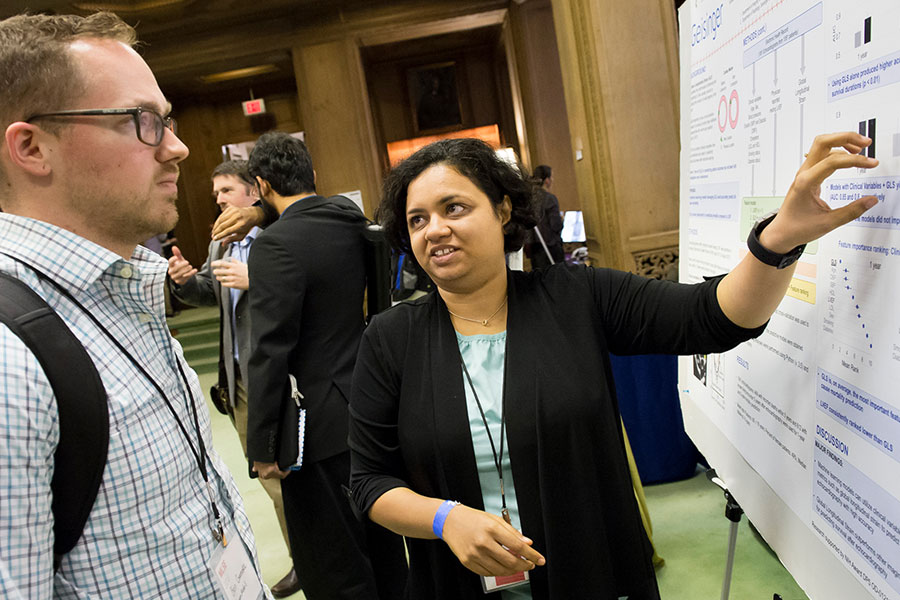
Scientists and Engineers Converge on CMU to Talk Machine Learning
By Ben Panko
More than 300 researchers and students from around the world converged on Carnegie Mellon University last month to share and discuss advances in artificial intelligence and how it's helping the fields of engineering and science.
"Machine learning is poised to have significant impact in research across science and engineering, changing both the types of questions that can be asked as well as how they are answered," said organizer Newell Washburn, associate professor of chemistry and biomedical engineering. However, the main conferences for machine learning don't focus much on topics in science and engineering, he noted, and likewise conferences in engineering and science tend to talk little about machine learning.
"We thought that there was a critical need for a machine learning conference that spanned the disciplines and created more opportunities for students to present and discuss their work," he said, which led him to spearhead the first Machine Learning in Science and Engineering conference with faculty from Carnegie Mellon and the Georgia Institute of Technology.
"I thought he was both insane and incredibly brave," said organizer Dana Randall, a professor of computing at Georgia Tech, at the conference's opening ceremony.
"Data-driven methods, often drawing on advanced machine learning, are becoming more prominent across the sciences," Biological Sciences Professor Russell Schwartz said of why he participated in the conference. "In many cases, models and methods are translatable across scientific disciplines and the work others are doing in very different domains can end up solving problems in my own areas of biological research."
Schwartz presented his lab's work on cancer genomics, with a focus on how it has used machine learning to study tumor heterogeneity, the genomic variations between different cells in tumors that can determine how they form and are treated.
"Machine learning methods have proven valuable for us in making sense of these complicated, high-dimensional and noisy data sets."
Matthew Ho, a first-year physics graduate student in the McWilliams Center for Cosmology, presented his work using machine learning and statistical models to study patterns in cosmological simulations of dark matter to learn more about observational data of galaxy clusters.
"We are studying lots of complex, non-linear phenomena that are difficult to identify and model with traditional means," Ho said. "We also have more data than ever before. This is exactly the space in which machine learning excels."
Along with Washburn, MCS faculty Rachel Mandelbaum, associate professor of astrophysics cosmology, David Yaron, professor of chemistry, and Manfred Paulini, professor of physics and associate dean for faculty and graduate affairs, helped organize the conference.
The meeting will be covered in a special issue of the Journal of Chemical Physics. Georgia Tech will host next year's conference.
The conference was sponsored by the American Institute of Physics' Journal of Chemical Physics, Google, Citrine Informatics, the National Science Foundation, Intel, the National Institute of Standards and Technology, Johnson Controls, Covestro, ExxonMobil, UPMC Enterprises, IBM, Geisinger, Bristol-Myers Squibb and Carnegie Mellon's College of Engineering, Mellon College of Science, School of Computer Science and the Pittsburgh Supercomputing Center (PSC).
Originally published: https://www.cmu.edu/mcs/news-events/2018/0703_MLSE-Conference.html